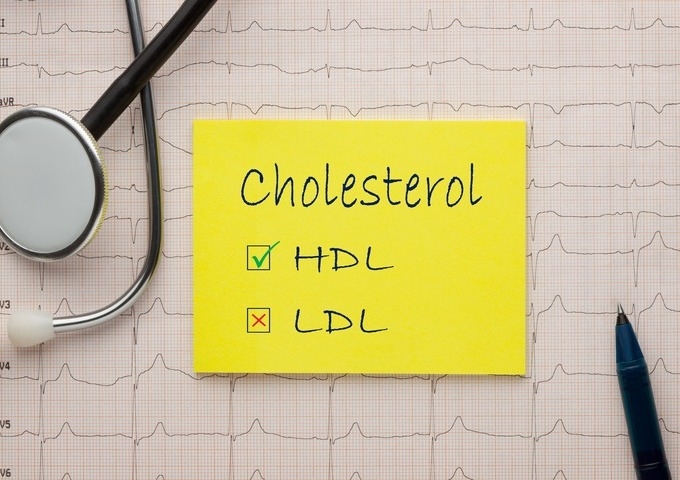When one mentions the word bacteria, it often comes with the association of dirtiness or illness. However, there are actually helpful bacteria out there in the form of helpful microorganisms! If you need help for your gut, you can get probiotics for gut health in Malaysia now. Some bacteria help digest food, destroy disease-causing cells, or produce vitamins. These are also known as probiotics, and many of the microorganisms in probiotic products are the same as or similar to microorganisms that naturally live in our bodies. In this article, we'll explore more about what probiotics are, their benefits to your body and gut health as well as where to find the best probiotics for gut health Malaysia has to offer. What are probiotics? Probiotics are live microorganisms that have health benefits when consumed in adequate amounts. Maintaining a good level of probiotics in your body has been shown to support immune function, aid digestive health and even boost your metabolism. Two of the most widely recognized probiotics for supporting digestive and immune health are bifidobacteria, most commonly found in the large intestine, and lactobacilli, which reside in the small intestine. Today's probiotic products are intended to have health benefits when consumed! They can be found in yogurt and other fermented foods, dietary supplements, and even beauty products. Why are probiotics good for gut health? When we eat, microorganisms in our gastrointestinal (GI) tract eat too. Sometimes, the number of good microorganisms can be lowered (for example, if you have diarrhea or if you're on a course of antibiotics). When this happens, taking probiotics helps to increase the number of good organisms in your GI tract. In fact, studies so far have identified a few functional uses of probiotics, including: Promoting the health and maintenance of our digestive tract’s cell lining Supporting immunity Managing inflammation In fact, probiotics introduce beneficial bacteria into the gut microbiome that can help restore balance and prevent unhelpful, opportunistic bacteria from becoming too abundant. In summary, probiotics can help if you have diarrhoea after using antibiotics, Clostridium–associated diarrhoea, ulcerative colitis, or irritable bowel syndrome (IBS). They can also help with colic in infants. Some research also suggests that probiotics could have anti-cancer properties, especially against colon cancer. This is due to certain strains of Lactobacillus and Bifidobacteria that can stop the growth of bacteria which produce enzymes that convert pro-carcinogens to carcinogens. Strengthen your gut health naturally with Stolle ImmuNuPlus ImmuNuPlus by Stolle is a recognised booster for gut health and is one of the best products with probiotics for gut health Malaysia has to offer. It provides hard-to-find complex bioactive factors that are clinically proven to improve your quality of life and balance your body's immune system. Some of the reasons why Stolle ImmuNuPlus is the best booster for your gut health include: Over 60 years of research have resulted in more than 20 published scientific studies, 200 awarded patents and international quality awards. Patented bioactive factors such as specific IgG , secretory IgA, lactoferrin and anti-inflammatory factors directly support the immune system by balancing immune responses Our exclusive milk protein concentrate ingredient enhances the immune effects 1.5 times Multiple health care functions meet nutritional needs of every life stage while also meeting the health needs of the entire family Manufactured by the largest dairy company in New Zealand, assuring the highest product quality Choose Stolle ImmNuPlus as your preferred probiotic booster for gut health As a favourite supplement of probiotics for gut health Malaysia has to offer, you can ensure you and your loved ones stay strong and healthy especially throughout this pandemic. Boosting your gut health and immune system through a healthy lifestyle and nutrient-rich products will make sure of that! Try it now - download our brochure at https://www.stolle.com.my/en/
more


Today, more and more children and adults are exhibiting allergies in Malaysia. In fact, it affects around one in five people. That being said, there are a large number of causes of allergy, and their symptoms range from minor discomfort to potentially life-threatening scenarios. For example, asthma is one of the most common and persistent allergies! Let's discover one of the best allergy relief products Malaysia now. In this article, let's discuss more about allergies, its symptoms, causes, treatments as well as the best allergy relief products Malaysia has. What is an allergy? An allergy happens when a person reacts to substances in the environment that are harmless to most people. These substances, also known as allergens, are commonly in the form of dust, dust mites, pets, pollen, insects, ticks, moulds, foods and even some medications. How does an allergy happen? When a person who is allergic to a particular allergen comes into contact with it, an allergic reaction occurs. As the allergen (such as pollen or even a bite of the allergen food) enters the body, it triggers the body to respond by releasing antibodies. These antibodies attach themselves to mast cells. When the pollen comes into contact with those antibodies, the mast cells respond by releasing histamine. This commonly results in inflammation such as redness and swelling, an irritating and uncomfortable experience. This form of inflammation is often considered a mild allergic reaction, as allergy will affect the body in different ways as explored below. How does allergy affect different parts of the body? While different people experience different symptoms depending on their level or allergy towards a specific allergen, some of the more common symptoms are: Swelling of lips, face, eyes. Sneezing. Runny nose. Red, watery and itchy eyes. Wheeze or persistent cough. Breathing problems. Swelling tongue and tightness of throat. Headache. Skin rash. Stomach pains. Vomiting and diarrhea. More specifically, the different body parts below will react with certain symptoms such as: Nose, eyes, sinuses and throat When allergens are breathed in, the release of histamine causes the lining of the nose to produce more mucus and become swollen and inflamed. It causes the nose to run and itch, and violent sneezing may occur. Eyes may start to water and you may get a sore throat. Lungs and chest Asthma can be triggered during an allergic reaction. When an allergen is breathed in, the lining of the passages in the lungs swells and makes breathing difficult. Stomach and bowel Foods that commonly cause allergy include peanuts, seafood, dairy products and eggs. Cow's milk allergy in infants may occur and can cause eczema, asthma, colic and stomach upset. Some people cannot digest lactose (milk sugar). Lactose intolerance causes stomach upsets, but should not be confused with allergy. Skin Skin problems that can be triggered by allergy include atopic dermatitis (eczema) and urticaria (hives). What are the common causes of allergies? A substance in the environment that can cause an allergic reaction in people is called an ‘allergen’. There are many different allergens, but they all share one thing in common – protein. Some allergens don’t contain protein to begin with, but bind with protein once inside the body to provoke the allergic reaction. Common allergens include: Food – such as crustaceans, eggs, fish, milk, peanuts, tree nuts (for example, almonds, cashews, pecans and walnuts), sesame and soy products. Plants – pollen from grasses and plants. Medicines – including prescription medications (such as penicillin), over-the-counter medicines (such as aspirin) and herbal preparations. Insects – such as dust mites and the venom from bees, ticks, ants and wasps. Moulds – such as mushrooms and mould spores. Animal products – such as the fur and skin flakes from domestic pets such as cats and dogs. Chemicals – including industrial and household chemicals and chemical products such as latex rubber. How to treat allergic reactions? Allergen avoidance or minimisation relies on identifying the cause of the allergy and taking steps to reduce exposure to the allergen. For example, reducing dust mite in the home may help reduce symptoms in people who are allergic to mites. You can also source for allergy relief products Malaysia has to offer in order to counter the effects of allergy and their symptoms. What are the medications used to treat allergies? Antihistamines block histamine release from mast cells, reducing symptoms. Non-sedating antihistamine tablets are available from pharmacies without a prescription. Antihistamine nasal and eye sprays can also be used. Intranasal cortiocosteroid nasal sprays (INCS) are effective for treatment of moderate to severe allergic rhinitis when used correctly. Medicated eye drops can be helpful in some cases Adrenaline (epinephrine) - is used for first aid emergency treatment of life threatening severe allergic reactions (anaphylaxis). Adrenaline is usually given using an adrenaline autoinjector that can be given without medical training. Non-medicated treatments such as saline sprays are used for treating allergic rhinitis and sinusitis. Allergen immunotherapy (also known as desensitisation) is a long-term treatment which changes the immune system's response to allergens. It involves the administration of regular, gradually increasing amounts of allergen extracts, by injections or by sublingual tablets, sprays or drops. Choose Stolle ImmNuPlus as your preferred allergy relief products Malaysia In fact, ImmuNuPlus by Stolle is one of the very few anti-inflammation relief supplement out there in Malaysia. It provides hard-to-find complex bioactive factors that are clinically proven to improve your quality of life and balance your body's immune system. Some of the reasons why Stolle is the best booster to prevent inflammation and allergic reactions include: Over 60 years of research have resulted in more than 20 published scientific studies, 200 awarded patents and international quality awards. Patented bioactive factors such as specific IgG , secretory IgA, lactoferrin and anti-inflammatory factors directly support the immune system by balancing immune responses Our exclusive milk protein concentrate ingredient enhances the immune effects 1.5 times Multiple health care functions meet nutritional needs of every life stage while also meeting the health needs of the entire family Manufactured by the largest dairy company in New Zealand, assuring the highest product quality There's no surprise why Stolle ImmNuPlus is one of the best allergy relief products Malaysia has to offer, and you can ensure you and your loved ones are protected against chronic allergy for good while boosting your health and immune system through a healthy lifestyle and nutrient-rich products! Try it now - download our brochure at https://www.stolle.com.my/en/
more
After any surgery, be it major or minor, doctors will advise their patients to get enough rest so that their body can recover. However, some people like to push their body to the limits, causing immediate or long-term complications to arise. If that happens, you need the best supplements to take after surgery for your body. You may think that your bodily functions aren’t doing anything while you’re resting but your body is doing a lot of healing when you’re sleeping. When your body and mind feel tired, that’s a signal that your body has lots of work to do. For your body to do all the work, you will need to get enough rest so that you can recover faster. That said, surgeries can be stressful. From the day you decide on the surgery until you fully recover. The stress isn’t only on you but also on your loved ones as they’ll want you to safely recover. Should you dismiss your doctor’s advice on getting enough rest or choose to rush your recovery, you’ll likely complicate the matter and cause your loved ones to worry more. Aside from getting enough rest, what you feed your body after surgery is also important. That’s because you may experience a higher risk of infection, pneumonia, weight loss, or loss of energy and motivation. When that happens, you’ll need good, nutritious food to perk up your mood, fight off infections, accelerate healing, increase your strength and energy, and maintain your nutrition stores. Here are the foods and best supplements to take after surgery. #1 Eggs Some people would say that eating eggs for breakfast is enough to last them until lunch. While it may be true for some, one egg contains plenty of proteins, vitamins A and E, B-complex vitamins, riboflavin, folic acid, calcium, zinc, and iron. For this reason, eggs are usually the first thing served to patients. That's why eggs is good to our body. #2 Fruits Different types of fruits offer plenty of nutrients such as vitamins A and C, fibre, and anti-oxidants. Berries, for example, even though they're small, pack a punch of vitamin C, which helps to increase the production of collagen and soft tissue, healing your incision site faster. Other fruits to include in your diet are apples, oranges, peaches, melons, etc. #3 Leafy greens Leafy greens like spinach, kale, bok choy, etc. may taste bland but they provide a wealth of nutrients such as vitamins A, C, and E. Also, vitamin K is produced by plants and is well-known for its role in blood clotting, which aids in healing. Other nutrients that leafy greens provide are fibre, iron, magnesium, potassium, and calcium. #4 Meats or alternatives During your recovery after surgery, it's important that you eat adequate amounts of protein to repair damaged muscles. That's where meats or their alternatives come in as they contain lots of protein and iron. Also, the amino acids in meat help to regenerate tissue and speed up wound healing. So, stock up on foods like poultry, seafood, beans and lentils, and nuts. #5 Fats One important thing to note about this food is that not all fats are bad. Healthy fats contained in avocados, coconut oil, nuts, olive oil, and seeds can help your body absorb vitamins from other foods in your diet. It also helps to strengthen your immune system and decrease your chances of infection post-surgery. #6 Whole grains Adding whole grains to your post-surgical diet will provide your body with the carbohydrates that your brain needs for energy while stopping your muscles from breaking down. Some foods to include in your diet are barley, quinoa, risotto, whole wheat or rye sourdough bread because the right carbs will bring your energy levels up. #7 Dairy Products Considered an excellent source of protein, incorporating some dairy products into your meals will allow your bones and muscles to rebuild and strengthen your immune system to fight off infection. That way, a healthy dose of dairy products can help speed up your recovery after surgery. If you’re looking for the best supplements that contain all or some of these foods to take after surgery, you can give Stolle ImmNuPro or ImmNuPlus a try. They work to support your immune system and help you to recover faster. With these supplements, you can ensure a healthy post-surgical diet so that you can recover safely and enjoy life to the fullest. Try them now – download our brochures at https://www.stolle.com.my/en/.
more
Do you find yourself feeling bloated, gassy or having loose stool every time you eat something with cream, drink a beverage with milk or enjoying a dairy-rich dessert? If yes, you might be lactose intolerant! You need to find best lactose intolerance supplement for your health. Simply put, lactose intolerance is a set of symptoms caused by the body’s inability to digest lactose properly. In this article, we'll discuss more about what is lactose intolerance, the different types of lactose intolerance, how to treat lactose intolerance as well as the best lactose intolerance supplements available out there. What is Lactose Intolerance? Here's the science behind it: lactose is a naturally occurring sugar found in dairy foods such as cow’s milk or cream. It is normally broken down or digested by an enzyme in our body called lactase, and ends up in the bloodstream as glucose (in other words, sugar). In the case of people with lactose intolerance, they don’t have enough of this enzyme to properly digest lactose, hence the name lactose intolerance! However, it is often found that people with lactose intolerance still produce a small amount of lactase. If you have lactose intolerance, it might not be necessary to remove dairy products from your diet completely. It should also be noted that the amount of lactose a person can tolerate varies according to every individual. For example, a small amount of milk in a cup of tea or coffee may be tolerated, but a milkshake might trigger much more adverse reactions. Did you also know that lactose intolerance is much more prevalent among Asians among all other races? What Are The Symptoms Of Lactose Intolerance? Signs and symptoms of lactose intolerance usually begin within 30 minutes to two hours after eating or drinking foods containing lactose (milk, yogurt, cheese, etc.). These symptoms include: Nausea Vomiting Abdominal cramps Bloating Gas Diarrhea More often than not, symptoms are mild and might not even be noticeable. However, there are cases where lactose intolerance turns much more severe. Hence, if you consistently experience these symptoms after eating or drinking dairy products, it is a telling sign that you are lactose intolerant. If you experience occasional bouts of discomfort following dairy consumption, however, it might not necessarily mean that you’re lactose intolerant. Three Types Of Lactose Intolerance 1) Primary Lactose Intolerance People who develop primary lactose intolerance — the most common type — start life producing enough lactase to process lactose. This is due to the fact that infants who get all their nutrition from milk need lactase for effective digestion. As children replace milk with other foods, the amount of lactase they produce normally drops, but usually remains high enough to digest the amount of dairy in a typical adult diet. In primary lactose intolerance, lactase production falls off sharply by adulthood, making milk products difficult to digest. The best lactose intolerance supplement is capable to solving this issue. 2) Secondary Lactose Intolerance This form of lactose intolerance occurs when your small intestine decreases lactase production after an illness, injury or surgery involving your small intestine. Diseases associated with secondary lactose intolerance include intestinal infection, celiac disease, bacterial overgrowth and Crohn's disease. Treatment of the disorder that causes secondary lactose intolerance might restore lactase levels and improve signs and symptoms, though it can take time for that to happen. A faster solution is by consuming the best lactose intolerance supplement. 3) Congenital or Developmental Lactose Intolerance It's possible, but rare, for babies to be born with lactose intolerance caused by a lack of lactase. This disorder is due to a genetic factor that's passed from generation to generation in a pattern of inheritance called autosomal recessive, meaning that both the mother and the father must pass on the same gene variant for a child to be affected. Treatments for Lactose Intolerance If you don’t want to give up dairy, milk and delicious ice cream, there are a few natural treatments that can help you counter lactose intolerance or even build your lactase levels with proper gut health. Some of them include: a) Enzyme Supplements It’s possible to buy enzymes to help digest lactose. These are tablets you swallow or drops you add to foods and drinks. However, the effectiveness of these products seems to vary from person to person. Nevertheless, lactase enzyme supplements may be very effective for some people. b) Lactose Exposure If you are lactose intolerant, regularly including lactose in your diet could help your body adapt to it. c) Probiotics and Prebiotics Probiotics are microorganisms that provide health benefits when consumed. On the other hand, prebiotics are types of fiber that function as food for these bacteria. They feed the beneficial bacteria you already have in your gut, so that they thrive. Both probiotics and prebiotics have been shown to reduce symptoms of lactose intolerance. Of course, some types of probiotics and prebiotics may be more effective than others for people with lactose intolerance. One of the most beneficial probiotics is thought to be Bifidobacteria, often found in probiotic yogurts and supplements. Try boosting your gut health with nutrition and supplements While there are plenty of other ways you can adapt your body and boost your lactase levels, one of the best ways you can supercharge your gut microbiome to counter lactose intolerance is with Stolle's ImmuNuPro, one of the best supplements for gut health out there in the market! In fact, ImmNuPro gives you a hard-to-find complex bioactive ImmunoNutrition (including immunogoblins, and anti-inflammatory agents) that are clinically proven to improve your gut health, stabilize your immune system, regulate allergies and so much more. Some of the reasons why Stolle ImmNuPro is the best booster for your gut health and general immune system include: Welll-recognized with worldwide patents, published clinical studies, and certified manufacturing in New Zealand STOLLE MPC is rich in patented bioactive ImmunoNutrition (such as immunoglobulins and anti-inflammatory factors) Patented yeast β-glucan has been clinically proven to help stabilize the function of your immune system Stabilizes and balances immunity for your busy daily routine and stressful moments Regulates allergies and maintains your gut health by promoting the growth of beneficial bacteria by 50% Contains high-quality protein and high-purity essences as one of New Zealand's top-quallity product If you're looking for the best lactose intolerance supplement out there, give Stolle ImmNuPro a try With Stolle ImmNuPro, you can ensure your gut health and lactose levels is always at their fighting fit so you can enjoy life to its best! Try it now - download our brochure at https://www.stolle.com.my/en/
more
Aging is an inevitable part of life for all of us. It can be simply explained as the bodily changes from one stage of life to another that we experience during our lifespan. After all, our cells aren’t made to last forever! That's one of the reasons why you need to have one of the best anti aging supplements Malaysia for your health. This is due to the structures and functions in our cells declining over time. But why does this happen? In this article, let’s explore why humans age, and how you can slow down the effects and the best anti aging supplements Malaysia. What Are The Types of Aging? Aging can be categorized into two types: intrinsic aging (more commonly known as cellular aging) and extrinsic aging (also known as damage-related and environmental aging). While intrinsic aging is a genetically predetermined process that occurs naturally, extrinsic aging is a result of outside factors determined by how you live, your stress levels, and your lifestyle habits such as smoking. 1) Cellular aging Cellular aging happens due to intrinsic factors as it is directly related to the biological aging of cells. Cells are the basic building blocks of the body. Your cells are programmed to divide, multiply, and perform basic biological functions. However, the more your cells divide, the older they get. In time, cells eventually lose their ability to function properly. Cellular damage also increases as cells get older. This makes the cell less healthy, causing biological processes to fail. Cellular damage accumulates over time, too. 2) Damage-related and environmental aging Damage-related and environmental aging is related to extrinsic factors that cause our cells to age more than it naturally does. It refers to how our surroundings and lifestyle factors affect how we age, such as: Air pollution Tobacco smoke Alcohol consumption Malnutrition Ultraviolet Radiation (UV) exposure Over time, these factors can damage our cells and contribute to aging. Everyone experiences both types of aging. However, each form of aging varies from person to person, which explains why we age in different ways! Anti Aging Food And Supplements You Can Find in Malaysia While aging is inevitable and there is little we can do to stop it, your lifestyle choices can still affect extrinsic aging, such as your diet, social and exercise habits. These can all accelerate or decelerate signs of aging. That said, there are nutritional benefits of certain foods out there that are antioxidant-rich. Anti-oxidant rich foods can help in slowing the oxidative stress on the body, a leading cause of the appearance of aging. These are, in other words, anti-aging foods! Some of these foods include: Cruciferous Greens Oil-Rich Fish Avocado Coconut Oil Raw Cacao Spirulina Hemp Seeds Goji Berries Chlorella Otherwise, you can try anti-oxidant rich supplements such as Envita Vigor Plus! Vigor Plus by Stolle contains unique bioavailability-enhancing technology that eliminates toxic waste, boosts overall vigor and increases absorption effectively! Some of the reasons why Vigor Plus by Stolle is one of the best anti aging supplements Malaysia include: Liver protection from the enriched formula that boosts overall vigor Optimized with a unique formulation that accelerates the elimination of toxic waste High potency antioxidants for optimal performance every day Added bioavailability enhancers for better absorption and utilization Paired with strong antioxidants to provide effective liver protection The combination of curcumin and antioxidants compounds effectively protects liver function, effectively reduce GOT and GPT, reducing inflammation and accelerating toxic elimination of free radicals. Try Envita Vigor Plus as one of the best anti aging supplements Malaysia You can stay one step ahead in making sure you are beating the age curve with one of the best anti aging supplements Malaysia such as Stolle Vigor Plus! Try it now - download our brochure at https://www.stolle.com.my/en/
more
If you're looking to live a healthy lifestyle not just for now, but for years to come, you should be paying attention to inflammation more than anything else. That why it is important to know inflammation relief supplement Malaysia if you are having serious inflammation. The reason inflammation is so critical is that it has been found to be a player in almost every chronic disease such as heart disease and cancer. If inflammation hasn’t been shown to be associated with a specific chronic disease, it'll likely be one of the symptoms or one of the main ways of diagnosis a more serious illness than you think. In this article, we'll explore what inflammation is, its symptoms, the ways you can prevent inflammation and where you can find the best inflammation relief supplement Malaysia. What Is Inflammation? Inflammation occurs in two main ways. The first kind, called acute inflammation, is often a self-limited response to an injury or infection. For example, if you get a paper-cut or a sprained ankle, you’ll notice redness, pain, warmth and swelling in the area. But once all the cells from the inflammatory response have done their job and the injury is healed, that inflammation disappears. Here are five key signs of acute inflammation: Pain: This may occur continuously or only when a person touches the affected area. Redness: This happens because of an increase in the blood supply to the capillaries in the area. Loss of function: There may be difficulty moving a joint, breathing, sensing smell, and so on. Swelling: A condition call edema can develop if fluid builds up. Heat: Increased blood flow may leave the affected area warm to the touch. Chronic inflammation, on the other hand, is a much more problematic one. It may occur if the immune system is trying to fend off an infection. Otherwise, chronic inflammation happens when the immune system senses that something isn’t right, such as when LDL cholesterol makes its way into the lining of an artery. Inflammation makes it worse by making the plaque unstable and more likely to rupture. In fact, chronic inflammation can continue for months or years. It either has or may have links to various diseases, such as: diabetes cardiovascular disease (CVD) arthritis and other joint diseases allergies chronic obstructive pulmonary disease (COPD) psoriasis rheumatoid arthritis Symptoms Of Chronic Inflammation Here are five common indications that someone may have a chronic inflammatory condition: 1. Body pain Body pain such as muscle aches and joint pain are commonly caused by increased systemic inflammation. They can attack muscle and joint tissues resulting in redness, swelling, and pain. 2. Skin rashes Skin rashes such as eczema or psoriasis, are inflammatory skin conditions which are characterized by red, rough, and flaky skin. Both eczema and psoriasis are linked to hyper-sensitivity of the immune system and individuals with these conditions are more likely to have a greater number of inflammatory mast cells which when activated, trigger the skin rashes to surface. 3. Excessive mucus production Always needing to clear your throat or blow your nose? Sounds like you might be inflamed! When inflamed, mucous membranes produce thick phlegm in an attempt to protect epithelial cells in the lining of the respiratory system which results in coughing, sneezing, and a runny-nose. 4. Low Energy Constantly feeling fatigued despite getting adequate nightly sleep is yet another clue that your body is fighting off chronic inflammation. Just like you feel run-down when you’re sick, when you’re chronically inflamed your immune system remains active and continues to work overtime to regulate its response. In turn, chronic inflammation increases the requirement of cellular energy to ensure rapid regeneration of immune cells and further depletes you of the fuel you need to feel fully energized. 5. Poor digestion Common digestive issues including bloating, abdominal pain, constipation, and loose stool may also suggest an issue with inflammation. Chronic inflammation throughout the body can contribute to leaky gut syndrome, or intestinal permeability, which can cause bacteria and toxins to “leak” through the intestinal wall into the rest of the body. A “leaky gut” can further fuel ongoing systemic inflammation and contribute to digestive symptoms such as irregular bowel movements. Ways To Prevent Inflammation Besides a person's diet, lifestyle habits and environmental exposures can contribute to chronic inflammation. It's important to maintain a healthy lifestyle to keep inflammation in check. This includes adopting an anti-inflammatory diet that has become popular recently which includes eating more fish, fresh fruits, nuts and vegetables, and healthy fats. More noticeably, this includes eating less red meat that can promote inflammation. It's also best to minimize the amount of foods you eat that are high in saturated and trans fats, such as dairy products and foods containing partially hydrogenated oils, sugary foods and refined carbohydrates, such as white rice and bread. Otherwise, there is currently no prescription drugs that specifically target chronic inflammation. Prevent Inflammation Naturally With Stolle ImmNuPlus In fact, ImmuNuPlus by Stolle is one of the only inflammation relief supplement Malaysia that you can find. It provides a hard-to-find complex bioactive factors that are clinically proven to improve your quality of life and balance your body's immune system. Some of the reasons why Stolle is the best booster to prevent inflammation include: Over 60 years of research have resulted in more than 20 published scientific studies, 200 awarded patents and international quality awards. Patented bioactive factors such as specific IgG , secretory IgA, lactoferrin and anti-inflammatory factors directly support the immune system by balancing immune responses Our exclusive milk protein concentrate ingredient enhances the immune effects 1.5 times Multiple health care functions meet nutritional needs of every life stage while also meeting the health needs of the entire family Manufactured by the largest dairy company in New Zealand, assuring the highest product quality Choose Stolle ImmNuPlus as your preferred inflammation relief supplement Malaysia With Stolle ImmNuPlus, you can ensure you and your loved ones are protected against chronic inflammation for good while boosting your health and immune system through a healthy lifestyle and nutrient-rich products! Try it now - download our brochure at https://www.stolle.com.my/en/
more
For many people, their body's cholesterol levels become a concern as they age which they might need to take cholesterol supplement Malaysia if their level are not normal. Cholesterol is a waxy compound that some have likened to soft candle wax. In fact, it is a type of fat found in the tissues of both plants and animals, although only animals have varying amounts of cholesterol. In this article, we'll explore what exactly is cholesterol, why our body needs cholesterol, the difference between good and bad cholesterol as well as one of the best cholesterol supplement Malaysia. What Is The Role of Cholesterol In Your Body? While your body manufactures much of the cholesterol you need in the liver, all of us get more of it via our diet. For example, animal products such as chicken, beef, eggs, or dairy products contain varying amounts of cholesterol. Although cholesterol tends to get a bad reputation as being unhealthy, it also performs several important functions in the body. Apart from playing a role in forming and maintaining cell membranes and structures, your body cells also need cholesterol to help them adjust to changes in temperature. Cholesterol is also essential for making a number of critical hormones, including cortisol, testosterone, progesterone, and oestrogen. Lastly, your body also needs cholesterol to make vitamin D! What Is The Difference Between LDL and HDL? Your liver packages cholesterol into lipoproteins, which are combinations of lipids (fats) and proteins. Low-density lipoproteins, sometimes called “bad cholesterol,” gets its bad reputation from the fact that high levels of it are associated with increasing your risk of heart disease. When it becomes oxidized, LDL can promote inflammation and force lipids to accumulate on the walls of vessels in the heart and rest of the body, forming plaques. These plaques can thicken and may limit or completely block blood and nutrients to affected tissues or organs. On the other hand, HDL, or high-density lipoproteins, is commonly referred to as "good cholesterol." HDL gets its good reputation from the fact that it takes cholesterol from the cells and brings it to the liver. Having higher levels of HDL may also help lower your risk of developing cardiovascular disease. How To Lower Your Cholesterol Levels Naturally Apart from living a healthy lifestyle such as regularly exercising and having a moderate diet, you can also try using supplements to lower your cholesterol levels. In fact, ImmuNuPlus by Stolle is one of the best cholesterol supplements Malaysia out there in the market. It provides a hard-to-find complex bioactive factors that are clinically proven to improve your quality of life and balance your body's immune system. Some of the reasons why Stolle cholesterol supplement Malaysia is the best booster to lower your cholesterol levels include: Over 60 years of research have resulted in more than 20 published scientific studies, 200 awarded patents and international quality awards. Patented bioactive factors such as specific IgG , secretory IgA, lactoferrin and anti-inflammatory factors directly support the immune system by balancing immune responses Our exclusive milk protein concentrate ingredient enhances the immune effects 1.5 times Multiple health care functions meet nutritional needs of every life stage while also meeting the health needs of the entire family Manufactured by the largest dairy company in New Zealand, assuring the highest product quality Cows are fed year-round on all-natural New Zealand pastures that are scientifically managed, thereby ensuring the highest nutritional value Choose Stolle ImmNuPlus as your preferred cholesterol supplement Malaysia to lower your cholesterol levels naturally With Stolle ImmNuPlus as your chosen cholesterol supplement Malaysia to ensure your body's cholesterol levels are healthy, you can ensure you and your loved ones are kept one step ahead of any illnesses. Boosting your health and immune system through a healthy lifestyle and nutrient-rich products! Try it now - download our brochure at https://www.stolle.com.my/en/
more
In this article, we'll explore a little more about what is high blood pressure and the recommended supplement for high blood pressure Malaysia to keep yourself healthy. Here's an important question you should be asking yourself - are you living with hypertension without knowing it? In fact, nearly one in five Malaysians are experiencing hypertension, and many of them are not even ware of it! With the endless varieties of tasty treats and fancy deserts coupled with the stress of working long hours, it is extremely easy for Malaysians to fall into an unhealthy lifestyle. Hence, many people, old or young, are finding themselves diagnosed with a very silent illness - hypertension. While most people imagine an overweight, elderly and stressed out individual when they think of hypertension, even the average or skinny young adult could be suffering from hypertension without the slightest clue. What Is High Blood Pressure? Hypertension, or more commonly known as high blood pressure, is not an overnight disease. It is a result of various factors and takes time to build its case. For the most part, hypertension stems from lifestyle choices. Left untreated or undiagnosed, it could lead to kidney failure, stroke, blindness and heart attack. What Are The Two Types of High Blood Pressure? Essential or primary hypertension While this is the most prevalent type of hypertension or high blood pressure, there is no single cause of essential hypertension. However, it's often thought to be a combination of genetics, diet, lifestyle, and age. Lifestyle factors include smoking, drinking too much alcohol, stress, being overweight, eating too much salt, and not getting enough exercise. Changes in your diet and lifestyle can lower your blood pressure and risk of complications from primary hypertension. Secondary hypertension Secondary hypertension is when there’s an identifiable— and potentially reversible— cause of your hypertension. It’s more prevalent in younger people among those ages 18 to 40. The underlying causes of secondary hypertension may include: narrowing of the arteries that supply blood to your kidneys side effects of some medications, including birth control pills, antidepressants or other medications obstructive sleep apnea hormone abnormalities How To Measure And Understand Your Blood Pressure If you've got your hands on a blood pressure monitor and would like to know more about your blood pressure readings and what it means for you, read on! Blood pressure is the force of blood pushing against the arteries in your body. It is measured by two numbers: Systolic pressure (top number) This is the pressure that is exerted against your artery walls when your heart beats Diastolic pressure (bottom number) On the other hand, this is the pressure that is exerted against your artery walls when your heart rests, in between beats Universally, blood pressure is measured in millimeters of mercury (mm Hg). To determine whether someone has high blood pressure or hypertension, doctors often classify blood pressure readings into different categories: Normal blood pressure ● Systolic: Lower than 120 mm Hg ● Diastolic: Lower than 80 mm Hg Low blood pressure Sometimes, blood pressure can be lower than normal. Low blood pressure is considered: ● Systolic: Lower than 90 mm Hg ● Diastolic: Lower than 60 mm Hg Elevated blood pressure ● Systolic: 120 to 129 mm Hg ● Diastolic: Lower than 80 mm Hg Hypertension: Stage 1 ● Systolic: 130 to 139 mm Hg ● Diastolic: 80 to 89 mm Hg Hypertension: Stage 2 ● Systolic: more than 140 mm Hg ● Diastolic: more than 90 mm Hg Hypertensive crisis ● Systolic: more than 180 mm Hg ● Diastolic: more than 120 mm Hg You should seek medical consultation if your blood pressure is anything above or below the normal blood pressure levels, and seek immediate medical attention if you're at hypertension stage 2 and above! How To Keep A Healthy Level Of Blood Pressure 1. Keep Your Body Fat And Weight In Check Being overweight has always been known to be one of the causes of high blood pressure. For example, being overweight often leads to sleep apnea which causes disrupted breathing that eventually causes the blood pressure to rise. 2. Get Plenty Of Regular Exercise With our busy schedules, it can be difficult to maintain a regular daily workout session. However, it's important to remind yourself that routine will make a big difference in your attitude towards working out. Once you develop a routine and see some results, it is going to be tougher to keep you away from the gym as this new healthy addiction can be more self-rewarding than a slice of cake! 3. Go On A Balanced Diet To Reduce Weight Your choice of food is the second half of the equation when it comes to losing weight and maintaining the weight loss. The general rule of thumb is to minimize carbohydrate and sugar intake and opt for higher protein and fibre meals. While you do not have to eat as clean as a professional athlete, you should try small tweaks to change your diet gradually and start a habit of eating clean in simple ways. 4. Try Nutritional Supplements To Keep Blood Pressure Levels Healthy Many people might not know this, but there is high blood pressure supplements Malaysia that is proven to work in stabilizing your cardiovascular health and reducing your blood pressure! In fact, Stolle's ImmuNuPlus Milk has been clinically proven to contain patented bioactive factors that can reduce blood pressure levels and inhibit atherosclerosis development. As one of the best high blood pressure supplements Malaysia out there in the market, ImmNuPlus gives you a hard-to-find complex bioactive factors that are clinically proven to improve your health even further. Here's how: Over 60 years of research have resulted in more than 20 published scientific studies, 200 awarded patents and international quality awards. Patented bioactive factors such as specific IgG , secretory IgA, lactoferrin and anti-inflammatroy factors to lower blood pressure levels and inhibit atherosclerosis Our exclusive milk protein concentrate ingredient enhances the immune effects 1.5 times Manufactured by the largest dairy company in New Zealand, assuring the highest product quality Take care of your high blood pressure with Stolle ImmNuPlus With Stolle ImmNuPlus, this supplement for high blood pressure Malaysia can help lower or bring balance to your blood pressure to keep any negative health effects away from your body and stay fighting fit! Try it now - download our brochure at https://www.stolle.com.my/en/
more
If you take care of your health and watch what you eat, chances are, you've heard of the many benefits of antioxidants. But what exactly are antioxidants, and why are they often celebrated as one of the most important nutrients to maintain good health and prevent diseases? In this article, we'll explore a little more about what antioxidants are, where to get them and how to boost antioxidant levels in your body with antioxidant supplement Malaysia. What Exactly Are Antioxidants And Its Benefits Well, antioxidants are powerful substances that mostly come from the fresh fruits and vegetables we eat. As our bodies use oxygen, a waste product called reactive oxygen species (ROS) is produced - these can damage healthy cells by attacking your cell structures. They are also often referred to as free radicals. Free radicals are also produced from exposure to cigarette smoke, excess exposure to the sun, drinking alcohol, from exposure to large amounts of heavy metals and during any inflammatory response. Antioxidants neutralize the effects of these free radicals - that's why they are essential to good health. That's because if free radicals are left unchallenged, they can cause a wide range of illnesses and chronic diseases. Where Does Your Body Get Its Antioxidants? The human body naturally produces free radicals and antioxidants to counteract their damaging effects. However, in most cases, free radicals far outnumber the naturally occurring antioxidants. In order to maintain a good balance of antioxidants vs free radicals, a continual supply of external sources of antioxidants is necessary in order to obtain the maximum benefits of antioxidants. Foods that are rich in antioxidants can boost the body’s own supply, and there are plenty of evidence that suggests antioxidants from plant-based foods may become especially important as we age and produce more free radicals. Some of the best types of antioxidants and their food sources are: Flavonoids Parsley Celery Lemon and orange zest (peel) Soy beans Soy beverages Tofu Green and black tea Dark chocolate Black grapes Red wine Grapes Peaches Apples Pears Berries Chocolate Apples Onions Blueberries Leeks Kale Broccoli Cherry tomatoes Isothiocyanates Broccoli Cabbage Cauliflower Horseradish Phenolic acids Blueberries Kiwi fruit Plums Cherries Apples Pears Coffee Wheatgerm Bran Can Antioxidants Prevent Diseases? Research into antioxidants indicates that particular antioxidants have specific roles in disease prevention. These diseases include: #1 Cardiovascular diseases It is widely agreed that a diet high in fruits and vegetables reduces the risk of cardiovascular disease and some types of cancer. Growing evidence also shows that whole grains offer protective effects against both types of disease, although this may not be related specifically to their antioxidant capacity. #2 Cancer Research has found possible protective roles against cancer from various antioxidant-rich foods including spices, herbs and tea, fruit, vegetables and antioxidants in extra virgin olive oil. #3 Macular degeneration Studies of particular antioxidants has shown that they protected elderly people from further developing macular degeneration, the major cause of blindness among the elderly. How to Boost Your Body's Antioxidant Levels With Natural Antioxidant Supplements In Malaysia Here's one easy way of getting your daily oxidants - try Stolle's EnVita Vigor Plus Flavoured Drink Premix. As one of the most-trusted antioxidant supplement Malaysia, Vigor Plus is a high-purity curcumin is a patented and clinically tested to be better absorbed in the body. It rapidly revitalizes cells, reduces fatigue and inhibits free radical damage resulting in a slowing of the aging process! It is also clinically proven to effectively reduce GOT/GPT, helps eliminate waste and free radicals from the body, and cleanses you from the inside out. With no added sugar while tasting great by itself, you can effectively build up your health with the antioxidants present in Vigor Plus! Try Envita Vigor Plus energy booster supplements to reinvigorate your energy levels naturally Some of the reasons why Vigor Plus by Stolle is the best antioxidant supplement Malaysia which include: High potency antioxidants for optimal performance every day Added bioavailability enhancers for better absorption and utilization. Liver protection from the enriched formula that boosts overall vigor Optimized with a unique formulation that accelerates the elimination of toxic waste. Stolle Vigor Plus , our antioxidant supplement Malaysia is perfect for those who are facing fatigue, stress and overworked issues while trying to maintain good health via good nutrition! Try it now - download our brochure at https://www.stolle.com.my/en/
more







